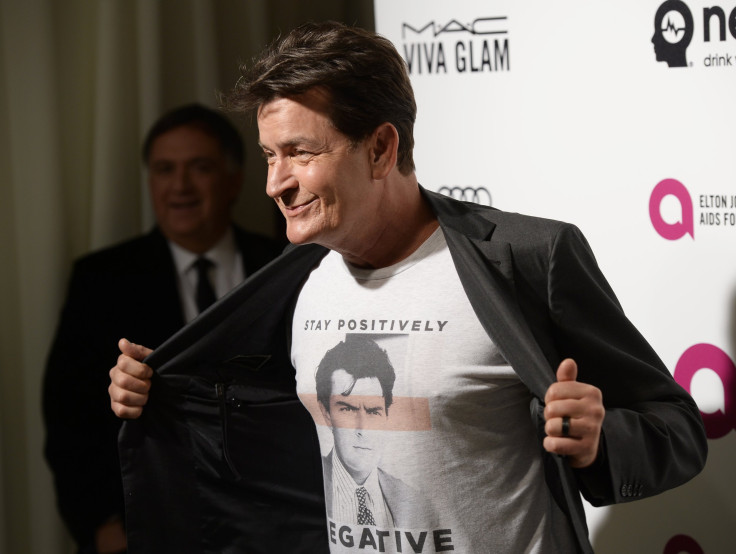Charlie Sheen's HIV Disclosure Almost Doubled Sales Of Test Kits, Study Reveals

In what the research team labeled “astonishing” and an “earth-shaking event,” according to reports of a study published Friday, renowned actor Charlie Sheen saved lives by revealing he tested positive for HIV.
The "Two And A Half Men" actor made the announcement on Nov. 17, 2015, on NBC’s Today Show. A study conducted by San Diego State University (SDSU) researchers last year showed how him revealing his HIV status urged millions of people to undergo HIV tests.
The study also revealed there was a surge in online searches about HIV prevention measures, reported ABC News.
Read: Charlie Sheen HIV Diagnosis: A Look At The Star’s Road To Recovery One Year Later
According to the study, popularly known as the “Charlie Sheen Effect” the sales of at-home testing nearly doubled days after his announcement, the report said.
The study was conducted by various institutions. It was published in the medical journal of Prevention Science Friday, ABC news report said.
“Our strategy allowed us to provide a real-world estimation of the Charlie Sheen effect on HIV prevention and contrast that effect with our past formative assessment using Internet searches,” Eric Leas, a research associate at the San Diego State University’s doctoral program in public health said in a statement Friday.
The analysts narrowed down their research to weekly analysis from April 12, 2016, to April 16, 2016, and took OraQuick rapid in-home HIV tests as their sample. Since OraQuick was the only test of this kind available in the U.S., it became much easier for the research.
After conducting the research, analysts found out that the week after Sheen announced his HIV status, there was a 95% spike in OraQuick HIV test sales.
After the successful completion of this small research project, analysts continued to track sales figures which were constantly above normal for the next four weeks, the ABC report said.
And if that wasn’t all, researchers found the sales figures exceeded the ones after World Aids Day.
“People look down at celebrities and feel that the information that's being generated is not useful to regular people. But it reminds us that, regardless of who the person is, it will at least generate interest,” Dr. Barron Lerner, a professor at NYU Langone Medical Center, said.
“Just like everybody, I watched on the Today Show when Sheen disclosed his HIV status, but when I watched it as a public health advocate, I saw that neither Sheen nor [Matt] Lauer was talking about HIV prevention,” Dr. John Ayers, a scientist at the SDSU told Global news.
“The headlines after that said little about HIV prevention, and I thought, ‘That’s sad, because wouldn’t it be great to get the positive message out there?’ The message has been consistent: know the signs and get tested,” he added.
Turns out the news of his HIV status itself was enough to increase HIV awareness among Americans.
© Copyright IBTimes 2024. All rights reserved.











